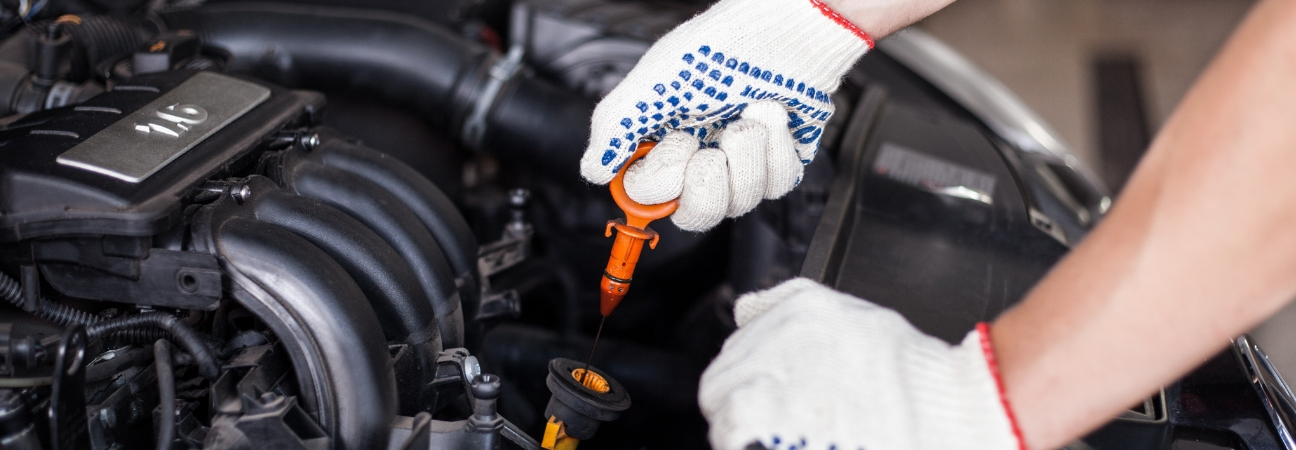All Categories
Featured
Accountable for integrating the rotation of the crankshaft and camshaft, the timing belt ensures the engine's valves close and open at the right times during the burning procedure. If the timing belt falls short, it can result in extreme engine damage.
What Is a Timing Belt? The timing belt is a long, toothed rubber or composite belt that links the crankshaft to the camshaft(s) in an internal burning engine. Its task is to maintain the engine's valves and pistons in sync, making certain the engine runs successfully. The timing belt additionally manages various other crucial engine functions like the water pump and the power steering pump, relying on the automobile.
![]()
Without the correct timing, the engine's valves and pistons can clash, causing costly and extensive damage. For that reason, replacing the timing belt on routine is one of the very best methods to ensure your engine operates at its best and prevent expensive repairs.
Why Timing Belt Substitute Matters. Stopping Catastrophic Engine Damages: The most substantial risk of not changing a used timing belt is engine failing. Changing the timing belt at the recommended periods is the finest way to prevent such devastating damages, saving you from the stress and anxiety and high price of engine repair services or replacement.
![]()
Maintaining Engine Effectiveness: A timing belt that's in great problem guarantees that all engine parts function in best harmony. If the timing belt is worn or extended, it can trigger the engine to shed power, experience harsh idling, or struggle to start. By replacing the timing belt frequently, you can keep your engine running at peak effectiveness, which helps preserve optimum gas economic climate and efficiency.
Staying Clear Of Unanticipated Malfunctions: A busted timing belt can cause your engine to quit suddenly, possibly leaving you stranded in the middle of a journey. By changing your timing belt on time, you reduce the risk of sudden failures that might leave you in a unsafe or troublesome situation. Regular upkeep decreases the possibilities of experiencing these sort of disturbances, assisting you remain on the road longer without fretting concerning your engine falling short.
Affordable Maintenance: Timing belt substitute is a lot more economical than fixing or replacing an engine that's been damaged as a result of a timing belt failing. While the expense of changing the timing belt may differ relying on your vehicle and its location, it is even more economical than the expenses related to significant engine fixings or substitutes. Replacing your timing belt at the advised periods can save you a substantial amount of money over the long term by stopping damage to your engine.
When Should You Change Your Timing Belt? The timing belt does not last permanently, and most manufacturers suggest replacing it between 60,000 and 100,000 miles. The exact timing depends on your car's make, model, and driving conditions, so it's important to check your owner's manual for details advice.
Indications that your timing belt might require interest include uncommon engine sounds (such as a shrill whining or ticking noise), difficulty beginning the engine, or a reduction in engine efficiency. It's essential to have the timing belt inspected by a specialist mechanic. if you discover any of these signs.
![]()
Final thought. The timing belt is a crucial however small component of your engine, and normal substitute is key to maintaining your vehicle's efficiency and avoiding pricey damage. By remaining on top of timing belt upkeep, you'll guarantee your engine runs effectively, prevent unexpected breakdowns, and shield your cars and truck from significant repair work. Watch on your lorry's suggested timing belt replacement timetable, and constantly talk to a trusted mechanic to maintain your engine running efficiently for many years ahead.
What Is a Timing Belt? The timing belt is a long, toothed rubber or composite belt that links the crankshaft to the camshaft(s) in an internal burning engine. Its task is to maintain the engine's valves and pistons in sync, making certain the engine runs successfully. The timing belt additionally manages various other crucial engine functions like the water pump and the power steering pump, relying on the automobile.

Without the correct timing, the engine's valves and pistons can clash, causing costly and extensive damage. For that reason, replacing the timing belt on routine is one of the very best methods to ensure your engine operates at its best and prevent expensive repairs.
Why Timing Belt Substitute Matters. Stopping Catastrophic Engine Damages: The most substantial risk of not changing a used timing belt is engine failing. Changing the timing belt at the recommended periods is the finest way to prevent such devastating damages, saving you from the stress and anxiety and high price of engine repair services or replacement.

Maintaining Engine Effectiveness: A timing belt that's in great problem guarantees that all engine parts function in best harmony. If the timing belt is worn or extended, it can trigger the engine to shed power, experience harsh idling, or struggle to start. By replacing the timing belt frequently, you can keep your engine running at peak effectiveness, which helps preserve optimum gas economic climate and efficiency.
Staying Clear Of Unanticipated Malfunctions: A busted timing belt can cause your engine to quit suddenly, possibly leaving you stranded in the middle of a journey. By changing your timing belt on time, you reduce the risk of sudden failures that might leave you in a unsafe or troublesome situation. Regular upkeep decreases the possibilities of experiencing these sort of disturbances, assisting you remain on the road longer without fretting concerning your engine falling short.
Affordable Maintenance: Timing belt substitute is a lot more economical than fixing or replacing an engine that's been damaged as a result of a timing belt failing. While the expense of changing the timing belt may differ relying on your vehicle and its location, it is even more economical than the expenses related to significant engine fixings or substitutes. Replacing your timing belt at the advised periods can save you a substantial amount of money over the long term by stopping damage to your engine.
When Should You Change Your Timing Belt? The timing belt does not last permanently, and most manufacturers suggest replacing it between 60,000 and 100,000 miles. The exact timing depends on your car's make, model, and driving conditions, so it's important to check your owner's manual for details advice.
Indications that your timing belt might require interest include uncommon engine sounds (such as a shrill whining or ticking noise), difficulty beginning the engine, or a reduction in engine efficiency. It's essential to have the timing belt inspected by a specialist mechanic. if you discover any of these signs.

Final thought. The timing belt is a crucial however small component of your engine, and normal substitute is key to maintaining your vehicle's efficiency and avoiding pricey damage. By remaining on top of timing belt upkeep, you'll guarantee your engine runs effectively, prevent unexpected breakdowns, and shield your cars and truck from significant repair work. Watch on your lorry's suggested timing belt replacement timetable, and constantly talk to a trusted mechanic to maintain your engine running efficiently for many years ahead.
Latest Posts
NAPA AutoCare Certified: Rely on Montclare Auto Repair for Top-Tier Repairs
Published Apr 20, 25
2 min read
Montclare Auto Repair: The Trusted Choice for Dependable Repair Solutions
Published Apr 20, 25
2 min read
Comprehensive Auto Care at Montclare Auto Repair - See Our Offerings
Published Apr 20, 25
2 min read
More
Latest Posts
NAPA AutoCare Certified: Rely on Montclare Auto Repair for Top-Tier Repairs
Published Apr 20, 25
2 min read
Montclare Auto Repair: The Trusted Choice for Dependable Repair Solutions
Published Apr 20, 25
2 min read
Comprehensive Auto Care at Montclare Auto Repair - See Our Offerings
Published Apr 20, 25
2 min read